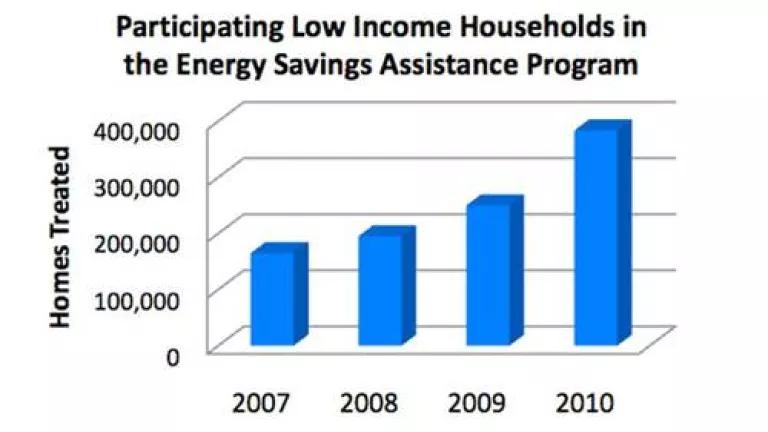
The Legislature’s Budget Conference Committee is expected today to decide whether to follow through on a proposal to raid $162 million in funds collected from gas users and customers in California for low income and cost effective energy efficiency upgrades and divert them to the General Fund. The raid passed the Senate Budget Committee last Friday, after being reduced by $100 million from the Legislative Analyst’s Office initial proposal. The Assembly chose not to vote on the item, which has landed the proposal in the Conference Committee (see below for full list of Committee members).
The Legislature established the Gas Consumption Surcharge Fund in 2000 (AB 1002 – Wright) to provide a funding stream for investments in cost-effective and low income energy efficiency programs for gas users and customers across the state. Unlike the public benefits charge that electric utilities collect to fund similar investments in electric efficiency programs, the gas surcharge is collected through state accounts in order to ensure all natural gas users contribute an equal amount (the gas market is more diverse than the electric market). Regrettably, the LAO seized on this anomaly to justify raiding a funding source for gas energy efficiency programs that deliver bill savings to California utility customers.
Let’s be clear: the budget challenges facing California are serious and many deserving programs and services will have to suffer cuts. But the funds at issue here are not like general tax revenue.
The Legislature established the fund for the exclusive benefit of gas utility customers. Customers pay the surcharge to enjoy the bill savings that come from improved energy efficiency. Utilities rely on this fund to achieve efficiency savings and avoid the need for additional and more costly generation. Local contractors rely on this fund to employ installers and deliver weatherization and efficiency services. Most importantly, low income customers rely on this fund to lower energy bills and increase the comfort and safety of their homes. Raiding this fund is illegal and will have lasting effects on the network of efficiency service providers, contractors, and installers who are employing Californians in the green economy.
Raiding this fund is also simply bad policy.
Investing in energy efficiency has consistently been shown to significantly lower energy bills, create jobs, and reduce pollution – benefits which all utility customers enjoy. Energy efficiency is also our most cost-effective and common sense strategy to meet California’s pollution reduction goals under AB 32 and other statewide targets, like those set out in Assemblymember Skinner’s AB 758, which will greatly improve the energy performance of existing buildings throughout the state. But the benefits of improved efficiency may be greatest in California’s low income communities, where poorly weatherized homes, high unemployment rates, and proximity to fossil-fuel fired power plants are too often the norm.
California’s investor-owned utilities rely on the Gas Surcharge funds to deliver free gas efficiency services to qualified low income households under the Energy Savings Assistance Program, which last year treated more than 380,000 homes across the state (or more than double the number of homes treated in 2007, as seen below).
While the Senate, in reducing the proposed raid from $262 to $162 million, expressed its desire to preserve the portion of funding for low income energy efficiency, the reality is that gas utilities will not be able to maintain their current outreach and enrollment efforts with the remaining funds. That means more low income households will not see the financial and health benefits of lower energy bills and weatherized homes, and more low income communities will not reap the economic and job impacts of delivering efficiency services.
Let’s all call on the Conference Committee to reject the proposed transfer and keep California on a path to a clean energy future.
The Budget Conference Committee members are:
Assembly
1. Assemblymember Bob Blumenfield, (Chair) Democrat, 40th district
2. Assemblymember Felipe Fuentes, Democrat, 39th district
3. Assemblymember Diane Harkey, Republican, 73rd district
4. Assemblymember Jim Nielsen, Republican, 2nd district
5. Assemblymember Nancy Skinner, Democrat, 14th district
Senate
1. Senator Mark Leno, (Chair) Democrat, 3rd district
2. Senator Alan Lowenthal, Republican, 27th district
3. Senator Gloria Negrete-McLeod, Democrat, 32nd district
4. Senator Bob Huff, Republican, 29th district
5. Senator Bill Emmerson, Republican, 37th district
